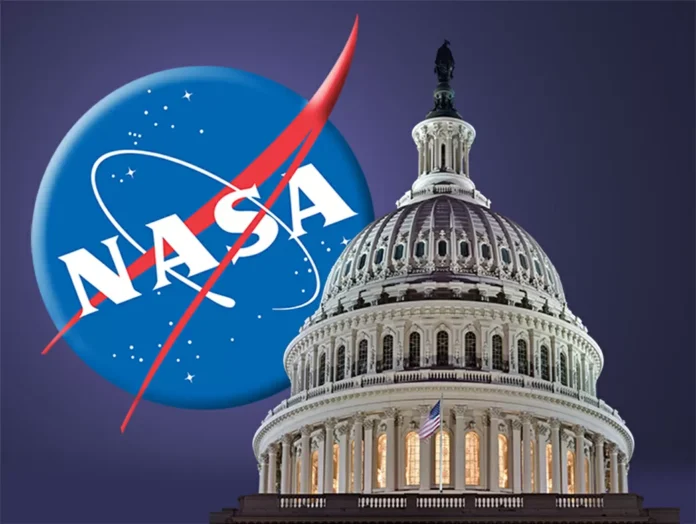The future of space exploration is at a critical point, with NASA facing budget constraints that threaten to limit its potential for groundbreaking scientific discoveries. However, there is a glimmer of hope on the horizon, as more than 40 House members have recently signed a letter urging for a significant increase in NASA’s science budget for 2025. This bold request has the potential to unlock a new era of space exploration and fuel humanity’s thirst for knowledge.
The letter, addressed to the House Appropriations Committee, highlights the crucial role that NASA’s science budget plays in advancing our understanding of the universe. It calls for a budget increase of $2.6 billion for NASA’s science programs in the fiscal year 2025. This may seem like a daunting demand, considering the current spending caps, but it is a necessary step to ensure that NASA remains at the forefront of scientific research.
The signatories of the letter come from both sides of the political aisle, showing a united front in recognizing the importance of NASA’s work. They represent a diverse group of states, including Texas, Florida, California, and Maryland, which are home to NASA’s major facilities. This bipartisan support is a testament to the widespread belief that investing in NASA’s science programs is vital for our nation’s future.
One of the key reasons for the requested increase is to address the impact of inflation on NASA’s science budget. In recent years, NASA’s science budget has remained relatively flat, while the costs of conducting space missions have continued to rise. This has forced NASA to make difficult decisions, often resulting in delays or cancellations of crucial missions. A budget increase would not only enable NASA to keep up with inflation but also provide the necessary resources to pursue ambitious scientific goals.
Furthermore, the letter emphasizes the role of NASA’s science program in driving technological innovation and economic growth. Every dollar invested in NASA’s science missions creates a ripple effect that benefits various industries, from aerospace engineering to computer science. It also inspires the next generation of scientists, engineers, and innovators, who will be crucial in tackling future challenges.
Perhaps one of the most exciting possibilities of a budget increase is the potential for new discoveries. Over the years, NASA’s science missions have revolutionized our understanding of the universe. From discovering new planets to exploring the depths of our solar system, NASA’s scientific endeavors have expanded our knowledge and inspired us to dream bigger. With a budget increase, we can expect more groundbreaking discoveries that will not only enrich our understanding of the universe but also have practical applications to improve our lives on Earth.
The timing of this letter is crucial, as NASA is currently at a critical point in its history. The agency is in the midst of several significant missions, including the upcoming Artemis program, which aims to send the first woman and the next man to the moon. This program will also lay the foundation for future missions to Mars and beyond. However, without adequate funding, these ambitious plans may remain nothing but a dream.
In light of the challenges brought by the ongoing pandemic, one might question the feasibility of a budget increase. However, the letter outlines a strategic plan that does not strain the budget in the short term. Instead, it proposes spreading out the increase over the next four years, giving NASA the necessary stability to plan and execute its missions effectively.
The letter’s impact has already been felt, with support from key figures in the space community, including NASA Administrator Bill Nelson. In a statement, Nelson expressed his gratitude for the House members’ support and acknowledged the critical role that NASA’s science programs play in shaping our understanding of the universe. He also emphasized the need for a stable and predictable budget to ensure the agency’s long-term success.
In conclusion, the post-congressional letter seeking a significant increase in NASA’s science budget has the potential to redefine the future of space exploration. It is a bold, but necessary, request that recognizes the crucial role of NASA’s science programs in driving technological innovation, inspiring future generations, and unlocking the mysteries of the universe. With bipartisan support and strategic planning, we can only hope that this letter will result in a brighter future for NASA and for all of humankind.

